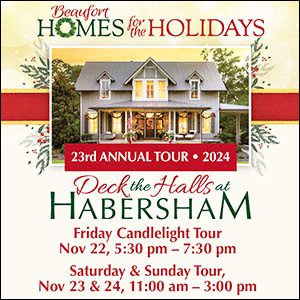“As humans, we need bright days and dark nights.”
Dave Crawford, Executive Director, International Dark-Sky Association
You know how, while flying his plane at night in 1999, JFK Jr. got spatial disorientation and took a fatal plunge into the ocean?
 That’s the same dark-sky scenario the Marine Corps Air Station Beaufort tries to recreate for its pilots on a regular basis. Minus the fatal plunge into the ocean, of course.
That’s the same dark-sky scenario the Marine Corps Air Station Beaufort tries to recreate for its pilots on a regular basis. Minus the fatal plunge into the ocean, of course.
That’s the main take-away I got from a visit to the aircraft carrier USS Enterprise a couple of weeks ago.
It turns out the skies in northern Beaufort County are especially dark, at least compared to those of other communities along the East Coast. This makes the runways at our air station especially valuable for pilots who need to learn what it’s like to land on an aircraft carrier at night.
Out at sea, on a dark night, it’s difficult for pilots to make out the horizon. The ocean and the sky become just one big piece of dark, so they can’t tell up from down.
When this happens, if you are a pilot who has to make decisions based on what you see outside the window, you are screwed. It would be kind of like driving your car in pitch black darkness with no headlights.
If, on the other hand, you can look at instruments in the cockpit to tell where you are and where you’re headed, you’ll be fine.
Learning to fly with just your instruments takes training and practice, practice, practice. Before fighter pilots can be trusted to land a fast jet on a tiny deck on the open sea in the dark, they’ve got to practice night landings on solid ground, using just their instruments.
The problem is that on some runways it’s too easy to cheat.
When military runways are close to developed areas, they get a lot of light spillover. If there is a glow on the horizon – from a mall, from a housing development, from a strip of gas stations and golden arches, or whatever – it kind of takes the sport out of it.
Imagine playing pin the tail on the donkey without a blindfold – after being told to pretend you can’t see. You have to admit, you’d be tempted to peek.
Just imagine how much more you’d be tempted to peek if you were in an airplane, zooming at hundreds of miles per hour and your life depended on your accuracy.
It’s just too difficult, cognitively, to pretend that you can’t see something as vast as a glowing sky when you do, in fact, see it.
So, for pilots in training, total darkness creates total dependence on instruments. No cheating. Such is the value of darkness.
And because northern Beaufort’s economy is almost totally dependent on the presence military installations like the air station, it behooves us to cultivate our darkness.
Darkness has other virtues, too. Scientists are doing more and more research on the effects of darkness on our environment, and on our health.
And that’s putting light in a bad … light.
There is light is merely annoying. There’s a phrase, “light trespass,” that refers to light that spills over into areas where it is considered undesirable.
Whether it’s desirable depends on what your intentions are. If you want to look at the stars, light is bad. If you want to see where you’re walking, light is good.
Then there is light that can be damaging. Excessive lighting consumes energy, costing us billions. Light disrupts wildlife habitats when nocturnal animals get their rhythms out of whack.
Worst of all, excessive lighting threatens beer production. At least one British farmer claims that his hops plants are failing to thrive because illumination from a new housing subdivision is encroaching on his fields.
Finally, there is deadly light.
Did you know that Finnish blind women are less likely to get breast cancer because their pineal glands can’t sense the difference between light and dark? Or that kids might get leukemia from sleeping with a nightlight on?
There’s actually no proven causation with all that stuff, but there are strong findings in the scientific literature that indicate we need to take the dangers of over-illumination more seriously.
If you have good night-time light hygiene, you have nice high melatonin levels, and the melatonin helps thwart cancer. And if you are indiscreet in your use of light, you risk raising your levels of cortisol, which just adds fuel to the cancer fire, supposedly.
So, given what we think we might know about the carcinogenousness of too much light at night, I thought it was downright bizarre when I heard about “Light the Night,” the fundraising event for the Leukemia & Lymphoma Society.
They might want to change it to something more indicative of the health benefits of photoperiodicity. “Darken the Night” has a nice ring to it.
Until I went out on the aircraft carrier, I didn’t get it. I didn’t know how important a dark night sky is to national defense, the Lowcountry economy, and public health.
You could say I was in the dark. And is that such a bad thing?
Dark Horizon, Bright Prospects




